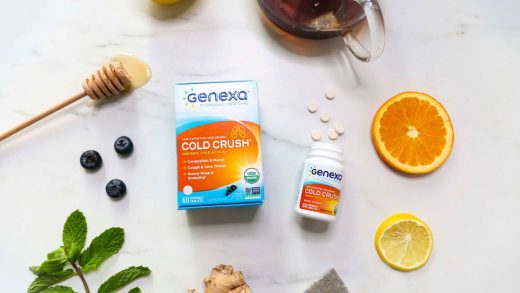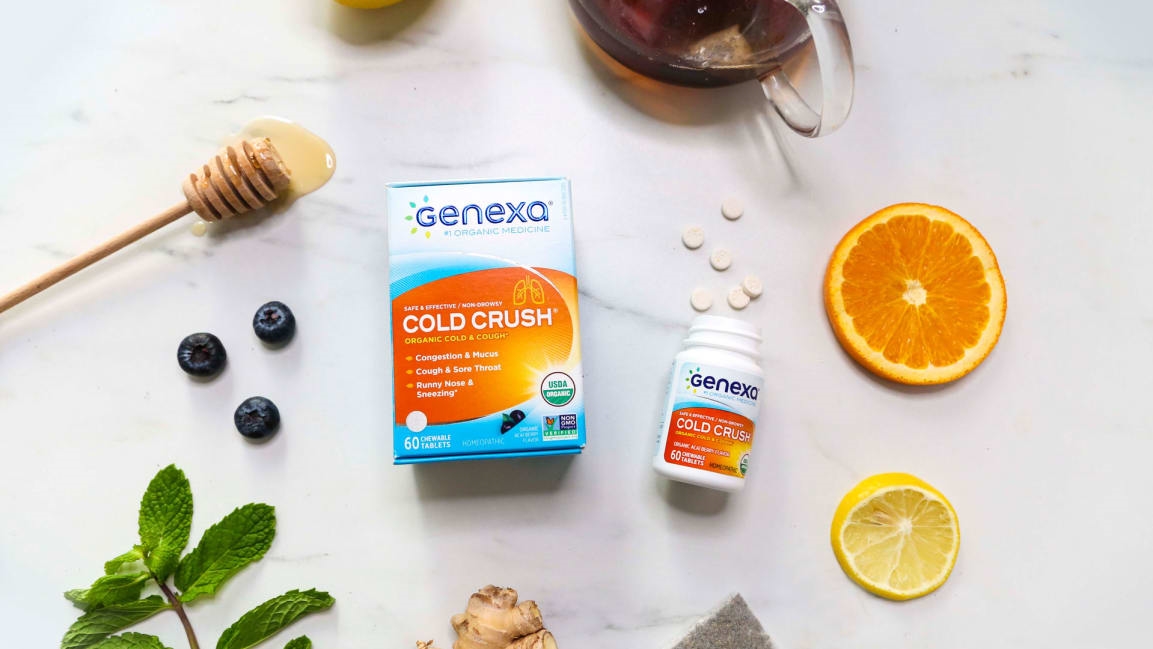Are “clean meds” the next big wellness frontier?
The concept of “clean” has taken over food (organic) and beauty (natural), before migrating to a host of other categories, like household products (non-toxic), where it has inspired a new generation of companies ranging from Beautycounter to Schmidt’s Naturals deodorants, all keen to capitalize on consumers’ growing desire for “better-for-you” ingredients.
But what about the medicine cabinet? Why has our Tylenol and cough syrup seemingly gone unnoticed?
The average over-the-counter med, whether it’s a fever reducer or antacid, is mostly composed of stuff you’d never normally want to ingest. In fact, a study found that 75% of common pills are filled with inactive ingredients like fillers, dyes, parabens, phthalates, talc, lactose, and gluten.

[Photo: courtesy of Genexa]
In such small amounts, this barely affects most people, but for some it can cause allergic or adverse reactions. Researchers discovered that at least 55% of drugs contained at least one hard-to-digest sugar linked to gas, bloating, abdominal pain, diarrhea, and constipation.
While they don’t potentially pose a serious health risk, they’re simply not necessary, argues entrepreneur David Johnson. “They can add up and start to contribute to the overall toxins put into your body.”
In 2015, Johnson launched Genexa, which bills itself as the “cleaner, healthier” alternative for run-of-the-mill medication. The manufacturer produces 16 items, including sinus relief medication, allergy suppressors, sleep aids, saline care, pain relief, and more. The line is a mix of homeopathic remedies and substitutes for over-the-counter medicines like Tums. But unlike their mainstream competitors, the company swaps over 60 artificial fillers for less-harsh alternatives like organic rice bran extract.
Their product packaging prominently features all the right buzzwords that health-conscious millennials gravitate to—it’s non-GMO, vegan, and USDA-certified organic. To top it off, it comes in trendy flavors like “acai berry.” (Grape? Please, that’s sooo baby boomer.) Oh, and of course, like all things today, everything is gluten-free.
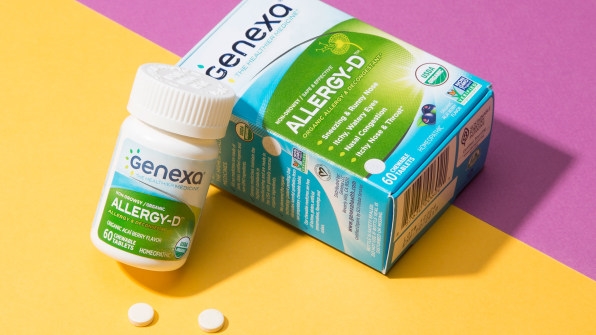
As a new dad, Johnson started reading the back labels of pain relievers for his children, questioning all the seemingly peculiar additives. He had a lot of questions. For example: Why are the pills pink? (Answer: artificial pink dye.) Meanwhile, his cofounder Max Spielberg reacted to the non-medicinal ingredients in allergy medications.
“It really inspired us to put products out there that could reduce the overall toxic effect to children and adults as well,” says Johnson. “And to bring the consumer a healthier product that they could take on a day-to-day basis that could deliver the same effectiveness, but reduce the synthetic nature of most of these products.”
Granted, fillers serve an important purpose. To start, medicinal ingredients are usually so tiny that it cannot sustain a sizable tablet. Some fillers enhance flavoring while others serve as preservatives or allow for proper disintegration. In general, you cannot deliver the active medicinal active as is–the body needs fillers and coatings to ensure stability and absorption. The question is, what should those non-medicinal ingredients be made of?
“There’s definitely a lot more conversation happening today as consumers start to recognize everything they’re putting in their bodies,” says Johnson, adding, “on the flip side, there are insurance companies unwilling to insure some of the ingredients that are in the current products.”
But should consumers care about medicines generally taken so infrequently and in such small doses? Lisa Schwartz, a pharmacist and senior director of professional affairs at the National Community Pharmacists Association, thinks most pain reliever medications don’t pose any sort of safety concerns to the general population.
Except for the few with food or allergy sensitivities, “It’s not going to be any different than buying certain candies or other food products you can get in the grocery store that are also regulated by FDA,” notes Schwartz.
More than a placebo?
The majority of Genexa products count as homeopathic, i.e., there is no product equivalent for a Tylenol or Motrin. Instead, it sells items like a roll-on pain reliever made with menthol or a more natural, alcohol-free saline.
Under the Federal Food, Drug, and Cosmetic Act, homeopathic products are subject to regulations regarding cleanliness, quality, and testing. However, they are not assessed as to whether they’re actually effective.
According to Dr. Jennifer Trachtenberg, MD, assistant clinical professor of pediatrics at The Icahn School of Medicine at Mount Sinai and host of Pediatrician in Your Pocket, that makes brands like Genexa hard to verify.
“Just because something is natural doesn’t mean that it’s safe, or that it even works. It doesn’t mean that it doesn’t work, but it also doesn’t mean that it does. There is just no oversight,” she says. “Oftentimes, parents are spending all this money on something that’s probably not any better than a placebo.”
That’s not to say doctors shun more natural remedies. For example, Trachtenberg advises those with coughs to use steam and honey, a method some studies say works better than traditional cough medicines.
Dr. Amy Shah, MD, a physician who specializes in allergy and immunology, serves as a member of Genexa’s Medical Advisory Board. She stresses that natural alternatives have their place in medicine.
“When you say homeopathy, it makes some think of a non-Western medicine component,” says Shah. “But there are Genexa items on par with products that I as a physician have been trained to give.”
Shah points to several medications that could potentially be consumed or absorbed in large quantities. Genexa’s Heartburn Fix antacid–a purer version of Tums–appeals to pregnant women who might be downing a bottle a week. (“Tums is 80% not Tums,” adds Shah.) Then there’s Genexa’s paraben-free decongestant saline, which is squirted directly into a child’s nasal cavity.
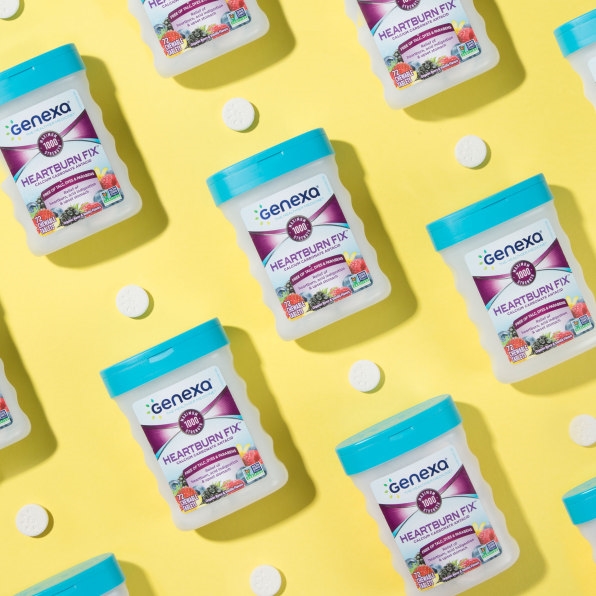
Genexa’s Pain Crush, a topical pain relief for minor aches and pains, competes with brands with Icy Hot. For consumers dealing with chronic pain, that could mean several applications a day. And as scientists have proved, what we put on our skin is absorbed into our bodies.
Shah is also quick to note that many of Genexa’s products are not a replacement for traditional medications like fever reducers or antibiotics. They can be considered in addition to more conventional measures. “There are some things that still are going to require non-natural solutions.”
The therapeutic space is a tricky one, specifically in how these brands are allowed to market themselves. The FDA recently sent a warning letter to a Zarbee’s, Inc., which sells natural cough suppressants and sleep aids, reprimanding it for claims that tried to establish its products were “intended for use in the cure, mitigation, treatment, or prevention” of sore throat and congestion relief. Only drugs can make such claims.
The next generation
Shoppers, especially women, have increasingly lost trust in pharmaceutical giants. There’s the recent Johnson & Johnson talc scandal, in which nearly two dozen women accused the healthcare giant’s signature product of contributing to their ovarian cancer. Not to mention shocking studies that found trace amounts of potential carcinogens in baby products. Such controversies led to J&J’s baby sales to decline by 20% since 2011.
In its shadow, a new generation of companies accommodate consumers looking to shun sulfates, parabens, artificial fragrances, and anything else deemed undesirable. “Natural” and “organic” are seen as better, safer, more luxurious, and a signifier you care more about your family’s health. That’s how Jessica Alba grew a company valued at roughly $1 billion. Heck, even Target is launching a Target, for example, is launching better-for-baby line.
“I think people are really starting to think that these drug companies are looking for the cheapest options,” says Shah. “That’s something that I see a lot of concern about: Who’s really watching out for our health?”
Although, even the “organic” sector suffers from transparency and quality issues. The terms “natural” and “clean” have become meaningless to some as the industry attempts to regulate brand claims. And while researchers repeatedly attest to chemicals’ hormone disruptors and effects on the body, it’s often difficult to measure it product by product.
“We don’t really know everything yet, so that’s why you have to weigh the risks and the benefit on all of these different types of medication,” says Trachtenberg.
Genexa knows its targets audience: moms. The company witnessed consumer behavior shift over gummy vitamin ingredients–pectin versus gelatin–and realized the “healthier” ingredient battleground was set. Basically, what started with supplements would eventually end with medicinal. It also helps that Genexa markets itself as an allergy-sensitive company. With the rise of allergies in the county, more and more parents are looking for products that won’t trigger any kind of reaction.
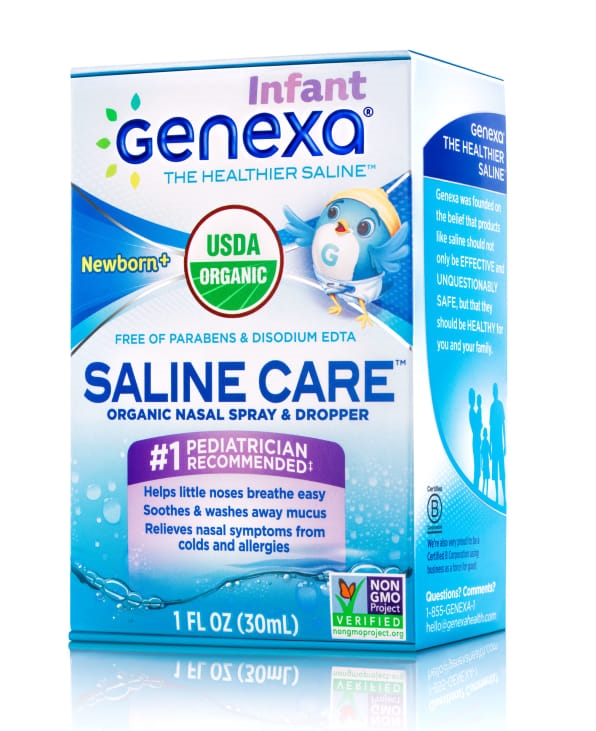
Genexa aggressively pursues moms by way of MommyCon and paid partnerships with influential mommy bloggers. One blogger recently posed in an earthy white gown while holding the company’s allergy medication alongside freshly cut sunflowers. It was followed by an image of her son propped up on a chair–mouth agape–waiting for his mother to give him a tablet.
The outreach efforts worked. Genexa grew more than 150% from 2017 to 2018, and the company predicts 200% growth for 2019. Over 35,000 stores now carry the brand, including CVS, Whole Foods, Sprouts, Vitamin Shoppe, and GNC.
Trachtenberg believes parents might veer toward companies like Genexa as the organic movement grows stronger, but when it comes to more severe cases like fever, they’ll likely stick with the tried-and-true.
“Parents know that Tylenol and ibuprofen have been around for a very, very long time,” she says. Still, she adds, most companies could do a better job monitoring their ingredients. “I love that Motrin comes without food coloring now.”
Genexa already has 10 more products in the works for the coming year, starting with baby care. The company intends to aggressively branch into new categories–and entice consumers beyond the parenting market.
“We really want to be the option for the customer when they go to the medicine shelf,” says Johnson. “We want them to be able to say, ‘If I need an antacid, a saline, laxative, anything–Genexa is the solution.”
(47)

